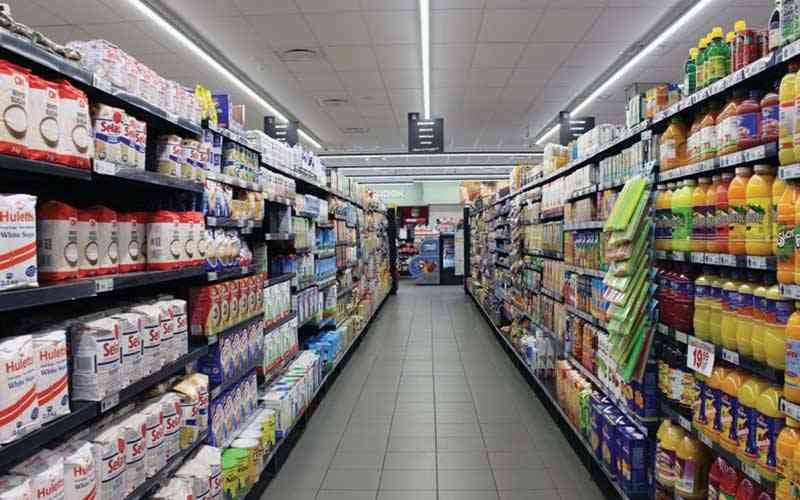
OUTPUT from several listed manufacturing firms crashed by wide margins during the first half, pushed back by tapering demand, power blackouts and tougher external shocks battering an industry that contributes 9% to the gross domestic product (GDP).
In contrast, authorities reported this week that the economy was in good shape, with GDP rising to ZW$56,7 billion during the second quarter, compared to ZW$54,3 billion during the same period in 2022.
In a report released on Monday, Zimbabwe National Statistics Agency (Zimstat) data indicated that the manufacturing sector was one of only four key sectors which struggled during the second quarter, falling by -2% year-on-year.
Growth in 10 others ranged between 0,2% and 23,5%.
The slide was heavier during the first quarter, when GDP growth plummeted by -35,9%, before recovering to 4,9% during the second quarter, in line with upheavals reported by some of the country’s biggest manufacturing firms covering the half-year ended June 30, 2023.
The heads of Zimbabwe Stock Exchange (ZSE) and Victoria Falls Stock Exchange (VFEX)-listed manufacturing firms sounded downbeat as they shared earnings with investors, indicating that contrary to positive GDP trajectories, industries were in tailspin.
Volumes plummeted, forex-indexed transactions made fresh inroads, with volumes sold in forex hitting 92% at the ZSE-listed Dairibord this July, while boards haggled over which should be their reporting currency.
In the end, some directors placed disclaimers on first half financial statements, expressing doubts over data credibility in a phase of exchange rate turbulence and rampaging inflation.
- Stop clinging to decaying state firms
- Thousands flee economic mess
- Piggy's Trading Investing Tips: De-risking mining projects
- Chance to buy 'undervalued' counters: FBC
Keep Reading
During a period marked by over 500% currency depreciation, firms were also tormented by blowbacks stemming from policy shifts in 2019, with the taxman now charging at General Beltings (GB) to reclaim a hefty fee following some confusion.
The ZSE-listed GB, which produces special rubbers for mines, also suffered a slowdown. It is in talks with authorities over the taxes, but prospects for a Zimbabwe Revenues Authority (Zimra) let up are uncertain, if disastrous developments to non-quoted cigarettes maker, Pacific, are anything to go by.
Last week, Zimra demanded US$28 million in unpaid taxes to the firm, forcing it to slide into voluntary administration.
The ZSE-listed Proplastics, which produces piping products for the domestic and export markets, grounded production for a cumulative three weeks after power shortages deepened. But it said both turnover and volumes improved.
“Turbulence hit the market and the official exchange rate, which was at US$1:ZW$671 at the beginning of the year, deteriorated to US$1: ZW$5 700 at the end of June,” Greg Sebborn, chairperson at the firm, said in a commentary to the financial results.
“The situation was even worse on the alternative market. Excessive power cuts related to load shedding were experienced, resulting in severe production interruptions. The business lost a total of 21 days of production due to power cuts.”
Volumes fell by 15% at BAT, the country’s largest cigarette maker after a liquidity crunch rattled markets, according to Lovemore Manatsa, chairperson at the ZSE listed operation.
“Ongoing currency volatility and shortages, coupled with the hyperinflation environment have led to liquidity constraints for both consumers and the business community, thereby impacting sales volumes for the group,” Manatsa said.
Grenville Hampshire, chairperson at plumbing material manufacturer, Turnall Holdings Limited, said the firm was working out plans to “restate manufacturing” at the firm’s troubled Harare operation after volumes fell by 6% during the period, but additional capacity may only come through around July 2024.
This will be a huge positive move for a firm that has battled to steady turbulences at production hubs in Bulawayo and Harare, compounded by logistical gridlocks rocking international freightliners as a result of prolonged confrontations in Eastern Europe.
The mood was also sombre at the big sugar producing conglomerate, starafricacorporation Ltd, as output slipped at its flagship Goldstar Sugars’ granulated sugar to 82 321 tonnes during the review period, compared to 82 500 tonnes a year earlier, following shocks triggered by an avalanche of imports.
Volumes were mixed at the VFEX-listed milling outfit, National Foods Ltd (Natfoods), which reported a 3% overall decline in volumes. Natfoods’ flour milling unit reported a 12,3% declined in volumes, followed by a 9,4% fall at its maize milling unit. The biscuit unit was down 1,8% in volumes. There were also healthy growths in its stockfeed, pasta, the Downpacked, cereals and snacks units.
“The past year has been a challenging one for the group, with a complex set of dynamics including the fluid operating environment as well as the inflationary pressures from global commodity prices having to be carefully managed,” Todd Moyo, chairperson of the firm, said. “Whilst the financial results for the year were disappointing from a profitability standpoint, there was significant and exciting progress in terms of our new product portfolio.”
Natfoods reported for the full-year to June 30, 2023.
Dairy products giant, Dairibord, said overall volumes grew by 9%, but a significant contraction was reported in its food-making division, which saw volumes decline by 23%.
Lumber sales volumes fell by 10% at Border Timbers, as aggregate demand declined.











